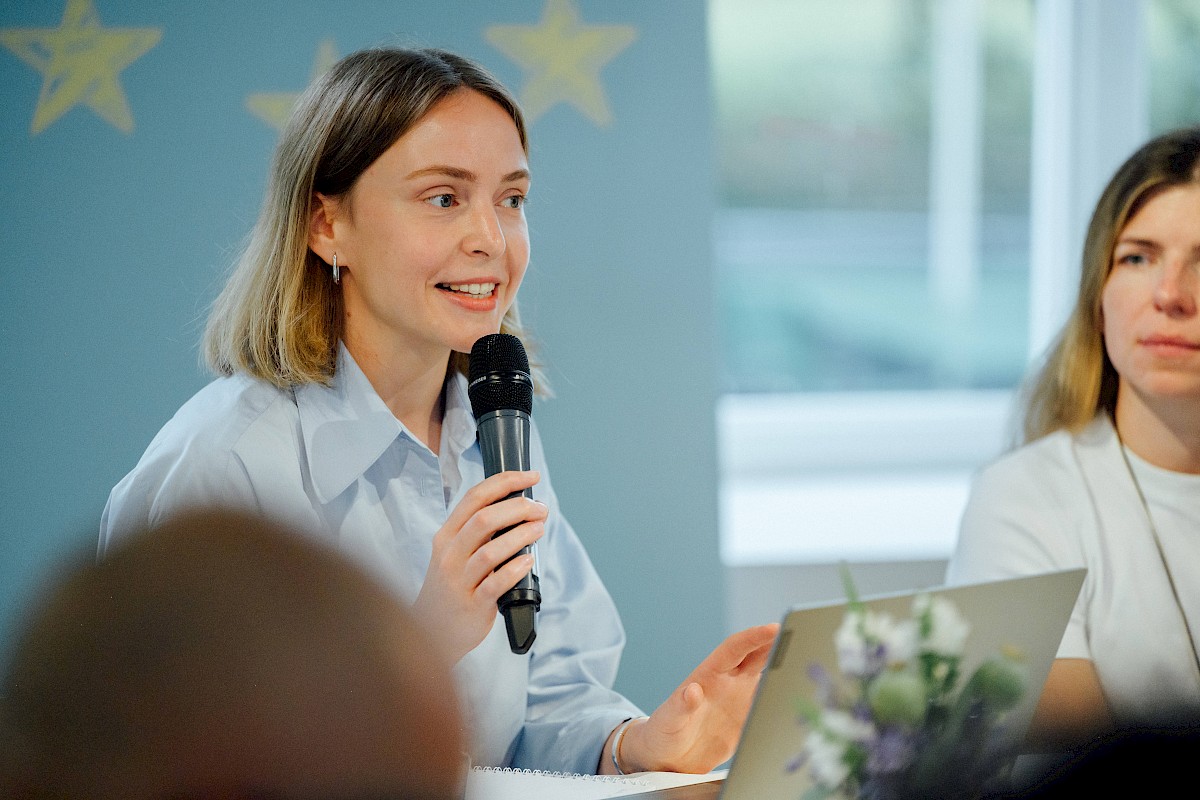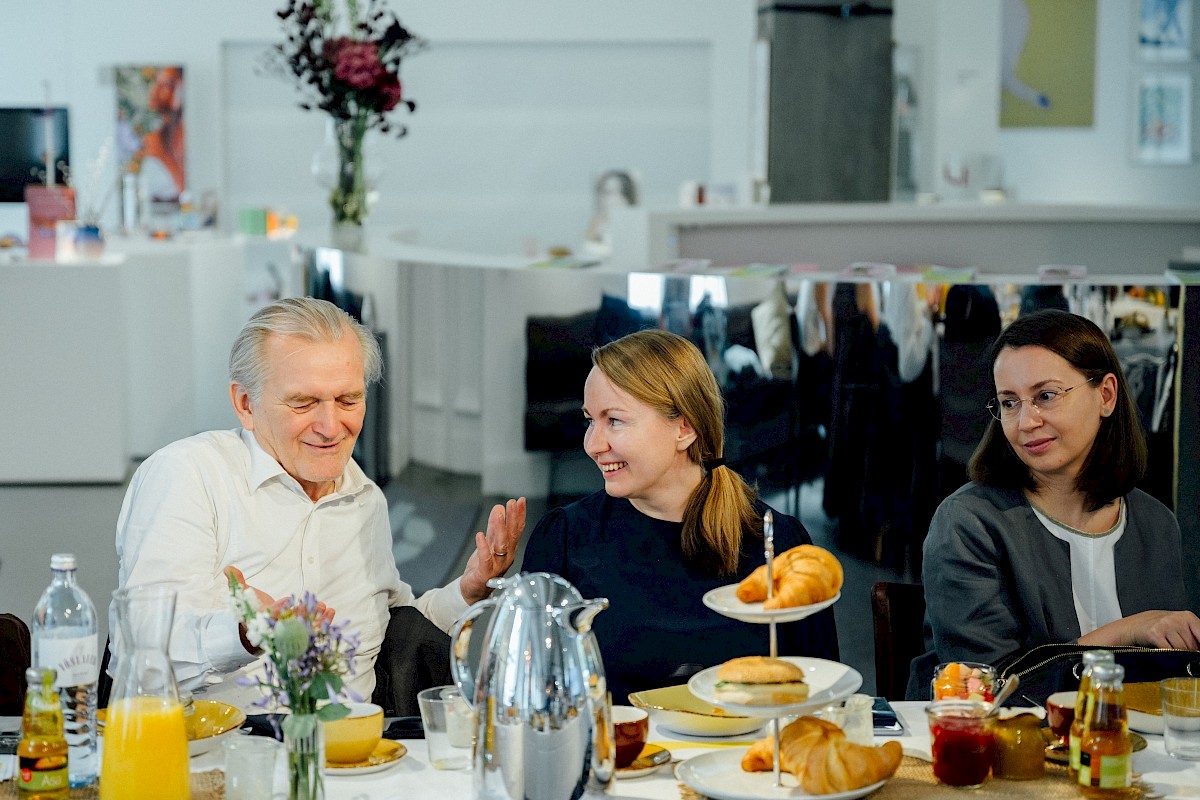The current economic situation in Ukraine: priorities and regional insights
On 25 June 2024, the EU held the first intergovernmental conference at ministerial level to open accession negotiations with Ukraine. The conference also focused on defining economic priorities for future cooperation. The accession negotiations are taking place amid the ongoing Russian aggression, which raises the question of whether Ukraine will be able to maintain economic stability at both the national and regional level.
Against this backdrop, IEP organized the sixth German-Ukrainian Breakfast Debate in Berlin on 11 July 2024 in cooperation with the New Europe Center (NEC). Firstly, it was emphasized that Ukrainian entrepreneurs are still proving to be resilient and creative, and that there are even signs of economic recovery: According to a forecast by the National Bank of Ukraine and the European Bank for Reconstruction and Development, Ukraine's gross domestic product will increase by 6.5 % in 2024. In addition, 90 % of all companies that have ceased operations since the beginning of the war of aggression have now resumed their work. Metal production and mining have also returned to 40 % of their original capacity. However, a free corridor to the Black Sea for exports is essential for the recovery of agriculture, which also plays a central role in the Ukrainian economy. The European Union could support the Ukrainian economy with closer integration into the EU market. The economic potential of Ukraine's accession to the EU due to its lithium and rare earth deposits should be emphasized more strongly.
However, the biggest challenge for the Ukrainian economy is the massive population loss of 30 %. Ukraine is also confronted with as many IDPs as the entire EU is with Ukrainian refugees.
Economic stability is also heavily dependent on a stable energy supply. The forecasts in this regard for the winter are worse than in 2022 and 2023. In order to make it more difficult for Russia, which is deliberately attacking Ukraine's energy production, to attack the grid, the focus in the future will be on small decentralized generators. In the long term, Ukraine will concentrate on more efficient and sustainable energy systems. In view of this, there is a great need for corresponding financial investments and components relevant to wind and solar energy. The lack of private investment could potentially be remedied with the 50 billion US dollars in frozen Russian assets.
The event was opened by our Director Prof Dr Funda Tekin, before Nadiya Bihun, Deputy Minister of Economy of Ukraine, and Maria Repko, Deputy Director of the Centre for Economic Strategy (CES, Kyiv), discussed key developments and challenges together with the guests. The debate was moderated by our research associate Laura Christoph.
As the "UA Transformation Lab" project funded by the German Federal Foreign Office will end at the end of August 2024, this was the last German-Ukrainian Breakfast Debate in Berlin for the time being.
Team & authors
 Share publication
Share publication





























